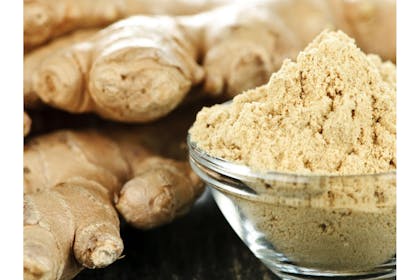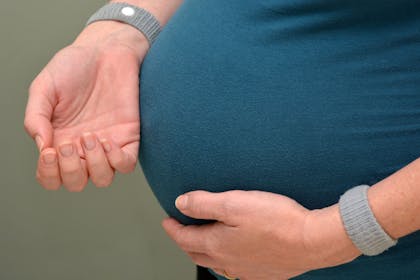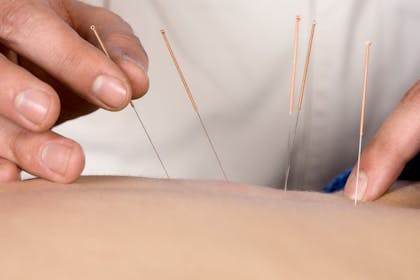Natural remedies for morning sickness
This page contains affiliate links, which means we may earn a small amount of money if a reader clicks through and makes a purchase. All our articles and reviews are written independently by the Netmums editorial team.
Natural remedies for morning sickness

Nibble on snacks little and often

Nibbling on dry and bland foods like crackers, plain crisps and breadsticks can keep the nausea at bay. Some mums keep a steady supply by their bedside table!
Grab some ginger

Ginger might become your new best friend as it is known for easing nausea. It doesn't really matter what kind - try ginger biscuits, ginger tea, ginger beer ...
Get out in the fresh air

Ah - you always feel less queasy in the fresh air. Head outdoors whenever you can, open car windows and keep the window open at night (unless it's freezing out there!).
FREE NEWBORN NAPPIES
Keep hydrated

Drink loads of water to stop yourself feeling dehydrated. Keep bottles in the fridge so you always have a nice cool drink at the ready.
Sip on some flat Coke

One top tip from mums is that drinking flat Coke really helps. The sugar also helps give you a boost when morning sickness makes you flag.
Love lemons

Some swear that sniffing lemon or rosemary can keep nausea at bay.
Lie down and rest up

Tiredness makes you feel even worse so grab any chance to lie down and rest that you can - not easy if you're working or have a toddler to look after!

Get comfy

The last thing you want when you feel like you might throw up is tight clothing squishing against your tummy. Wear loose, comfy tops (steal your hubby's if you need to!).
Try cider vinegar

Another one mums swear helps. Mix cider vinegar with honey and sip. Sounds vile but apparently it is quite nice!
Suck on some mints

Head to the sweet shop and pick up mints or boiled sweets to keep at the ready. Some say they help quell the nausea.
Carry a survival kit

If you find that you are sick rather than just nauseous it might be an idea to carry a survival kit with you when you are at work or out and about. A sick bag, mints, bottle of water and perhaps a supply of dry crackers might be handy to go in your survival bag. Lovely! - but you'll be glad you had it when you need it.
Step away from your screen

Yup we're all guilty of being glued to our screens but the flicker can make you feel sick so take a break every now and then.
Wear a wrist band

You know those little bands that stop travel sickness - many mums swear they work for morning sickness too.
Try accupuncture

Some mums-to-be swear that accucpuncture makes a difference and eases their morning sickness.
Eat what you can

Yes - you want to eat well in pregnancy but if you're feeling sick then just go easy on yourself and eat what you can. Little and often is the key.
After the initial excitement of finding out you're pregnant, you may start to experience one of the worst symptoms related to pregnancy - the so-called 'morning sickness'.
As well as vomiting, you may experience what feels like perpetual nausea, along with exhaustion. And unfortunately, most pregnant women experience it at some stage (usually in the first trimester, from the early weeks onwards).
In fact, more than 80% of pregnant women experience nausea, with half suffering from actual vomiting. And although the name suggests a short window, it often lasts all day and night, not just in the morning.
Pregnancy sickness is most common in the first 12 weeks due to hormonal changes and your baby growing. It's miserable, but almost always clears up by weeks 16 to 20.
You may also notice that you're more sensitive to smells in the early stages of pregnancy and that your usual perfume or certain cooking smells can make you retch; a good excuse to delegate dinner duties to your other half.
Many pregnancy women swear by keeping a pack of ginger biscuits by the bed, and nibbling on one before getting out of bed in the morning.
Be sure to keep some plain, dry snacks in your drawer at work too, which may also help with the daily nausea. Try to eat little and often - this can also help with any heartburn symptoms you may be experiencing.
Some women develop a severe form of sickness, with extreme, prolonged vomiting. This is known as hyperemesis gravidarum and needs medical attention, so speak to your GP if you can't keep any food or drink down as you might need treatment.
Of course, if you experience any unusual changes to your health while pregnant, and you are worried, always consult your doctor.
We've rounded up a list of tips and tricks to help you manage your morning sickness and an icky stomach, some of which are remedies mums-to-be swear by.
This includes top foods and drinks to try which are said to ward off sickness and take away any nausea you might be experiencing, like crackers and ginger tea.
If you don't feel up to eating, but you can manage it, drink lots of water, and try other fluids like flat coke which may help with your energy levels after being sick. Sip fluids little and often.
It's important that you are taking care of yourself, keeping your body active and moving, and getting enough vitamin D - particularly during the less sunny months of September - March. And don't forget your folic acid! If you're struggling to keep any supplements down, talk to your midwife.
The changes your body is going through can often feel like a rollercoaster, both physically and mentally, so rest up at home as often as possible and take good care of yourself.
Seven Seas Pregnancy Multivitamins contains both folic acid and vitamin D. See more details here at Amazon.
Boots also has a wide range of pregnancy supplements. See more details here.
What causes morning sickness?
Experts aren't sure exactly what causes pregnancy sickness, nausea and vomiting. It's all thought to be related to the changing hormones women experience in early pregnancy.
Soon after you conceive, the hormones in your body start to change. This can cause a whole host of pregnancy symptoms, from sickness to tiredness and even needing the loo more often!
Learn more about your changing hormones in pregnancy.
Are some people more likely to get morning sickness?
Most pregnant women experience some nausea or vomiting in early pregnancy, but it may be more likely if:
- this is your first pregnancy
- you've had severe nausea in a previous pregnancy, or a close family member has
- you're prone to travel sickness or migraines
- you're obese (with a BMI of 30 or more)
- you're having twins or more
- you're under a lot of stress
When should I seek help for morning sickness?
If you've tried everything you can and nothing's helping, make an appointment with your GP. If the self-help tips above don't work, your GP may be able to prescribe anti-sickness medication to help you feel better.
Anti-sickness medication is also known an 'anti-emetic' medication. This may be an antihistamine tablet (these are usually used to treat allergies, but can also help stop sickness). If you can't keep tablets down, you may be offered an injection, or a suppository.
Acupressure bands can also help with morning sickness. See more details here at Amazon.
According to the NHS, it's particularly important to see your GP if you're being sick and:
- you can't keep any food or drink down for 24 hours
- you feel very weak, dizzy or faint when standing up
- your have tummy pain
- your wee is much darker in colour than normal, you haven't had a week for more than eight hours, or there's pain or blood when you wee
- you're losing weight
These can be signs that you're dehydrated, or that you have a UTI - both of which need prompt treatment.
What won't help with morning sickness?
There's no evidence that homeopathy works for morning sickness. Health experts recommend avoiding homeopathy, as there's no evidence to support it, and homeopathic products aren't well-regulated, so it can be hard to be sure exactly what you're getting, particularly with products bought online.
There's little evidence for hypnotherapy or reflexology either, though there's no harm in trying them if you want.
Cannabis-based products are sometimes used for nausea, but it's very important not to use them during pregnancy, as they could harm your developing baby.
Are you struggling with morning sickness and nausea? Read on for support, and share your experience over on our forum:
Related stories
Early signs of pregnancy: am I pregnant?




